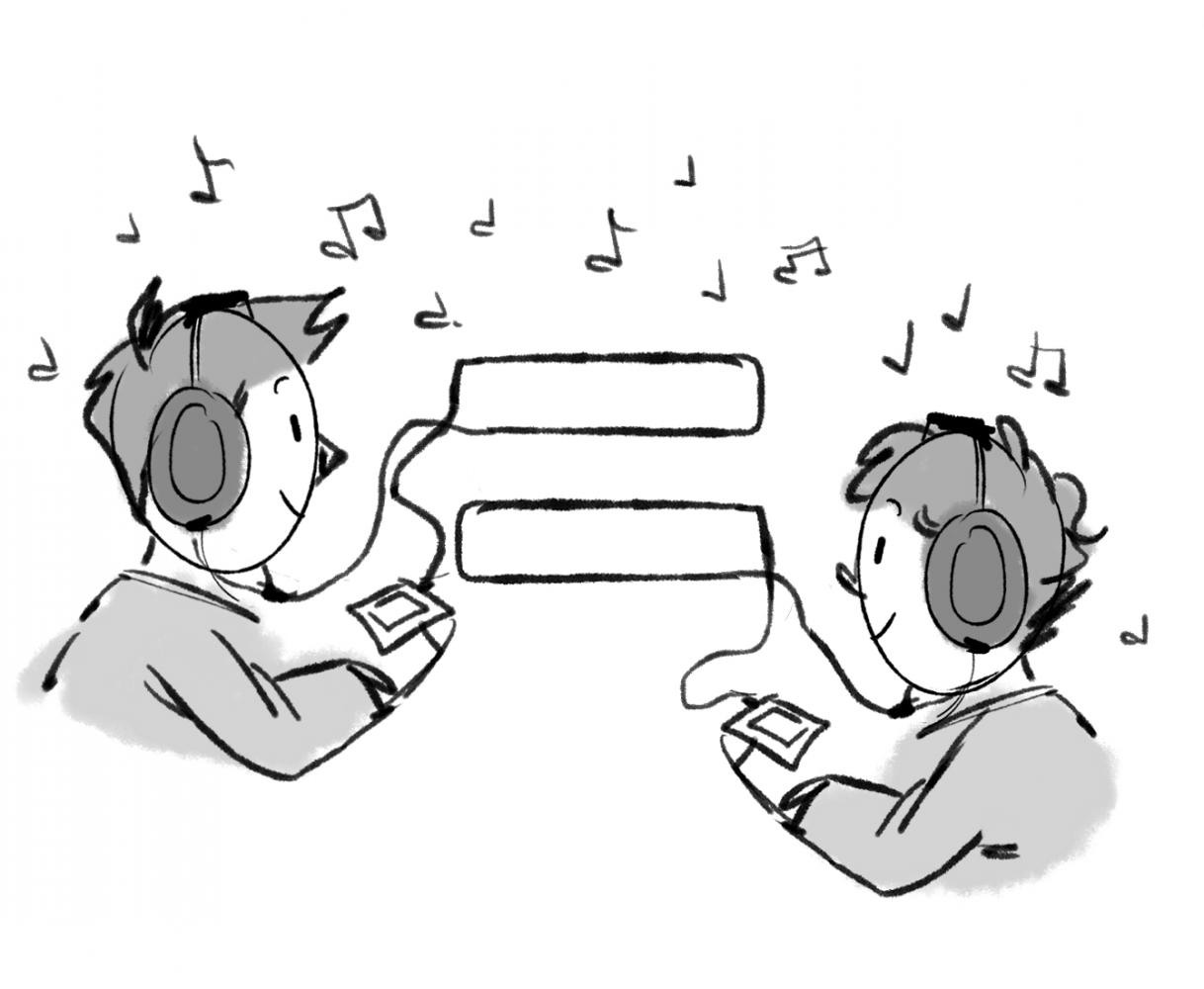Musical Peer Pressure
September 28, 2017
There is a deeply unfortunate and inextricable link between peer pressure and musical taste that undoubtedly merits discussion. Music is too awe-inspiring and profoundly personal for listeners to abandon the songs or genres that they truly find enjoyable in favor of what completely subjective measures of musical quality (i.e. the Billboard Hot 100 or their friends) deem worthy. Music should always be entirely enjoyable for the listener; if it’s not, something is gravely wrong.
I like to think of myself as a fairly independent individual. But with even the quickest glance at my iTunes library, the results of peer pressure and attempts at conforming are readily apparent. Taylor Swift’s Fearless album? Check. “Handlebars” by Flobots? Yep. The mortified shudder I often endure when scrolling through my musical version of memory lane isn’t because my musical tastes have radically evolved over time; the shudder is because peer pressure was the determining factor in my purchasing those songs. A significant number of the songs in my library are there because I disregarded my own perfectly valid musical opinions; I find it cringeworthy when the songs and artists that flash by my eyes are just not representative of either my past or present taste in music. There is so much music out there that I love or will love in the future; spending time trying to convince myself that my musical tastes perfectly align with those of others is an exercise in futility.

The musical peer pressure phenomenon is widespread and often deprives us of the chance to find music that truly speaks to us. Whether your medium of choice is Spotify, YouTube or anything else, peer pressure has an outsized influence in dictating exactly which songs and artists we listen to. In 2006, Princeton sociology professor Matthew Salganik sought out to understand precisely how knowledge of a given song’s popularity affects a listener’s opinion of the song. The results were remarkable; while a minute number of the 48 songs listened to in Salganik’s study were enjoyed or disliked by most of the study’s participants regardless of the song’s popularity, the vast majority of the participants’ musical ratings aligned almost exactly with previous listeners’ opinions of the songs.
Music touches us all in unique yet indescribably beautiful ways. It is a gorgeous means of personal expression and a completely universal language. Additionally, it’s an art form of uncommon power; I can’t even count the number of times I’ve been stopped in my tracks or gotten goosebumps when listening to a particularly magnificent piece of music. Scientific experiments show these sorts of experiences aren’t uncommon; for example, communal singing has been tied to the release of oxytocin, also known as the “love hormone.” Essentially, music has enormous potential to positively impact our lives. That’s why the pursuit of goosebumps-inducing music is so crucial. Whether it’s jazz, classical, hip-hop or anything in-between, there will always be musical works that pierce your soul with unbridled force; don’t let peer pressure and popularity impede your ability to discover such works.



